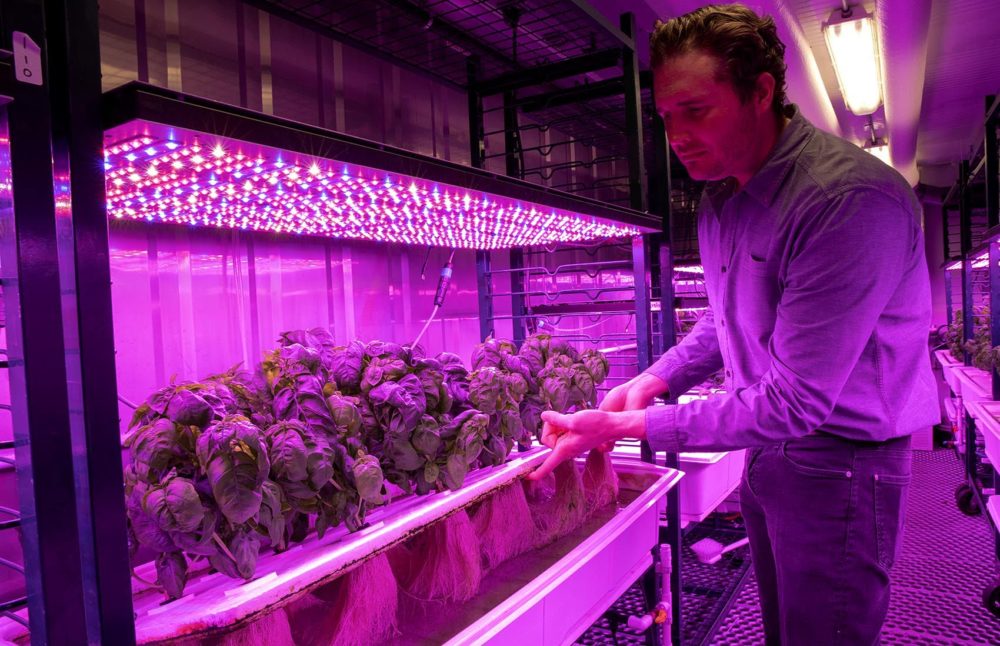Advertisement
Accused Of Dumping And Misrepresentation, MIT Agriculture Initiative Stops Work

An MIT research initiative facing allegations of improper dumping and academic dishonesty has stopped most of its work as its practices are reviewed.
On Sept. 20, WBUR and ProPublica reported that researchers for the “Open Agriculture” initiative repeatedly dumped water used as a growing medium — and containing levels of nitrogen well above the state’s legal limits — at the Bates Research and Engineering Center, an MIT-owned facility in Middleton.
"OpenAg," as it's known, hopes to create a global community of growers using "food computers" — notionally, sensitive and adjustable growing containers for "hyper-local" agriculture. But former members of staff have called into question the effectiveness of those computers, likening them to common hydroponic technology that do not grow plants well. (The initiative is itself part of MIT's embattled Media Lab, still recovering from news of high-level ties to convicted sex offender Jeffrey Epstein and the resulting resignation of director Joi Ito.)
In the Sept. 20 report, MIT’s deputy vice president Tony Sharon said that the initiative's work in Middleton would be suspended, but that the institute would work with state regulators “to find a solution that enables OpenAg’s research at Bates to continue.”
But the institute’s ban on ongoing work at OpenAg has become more comprehensive than that — at least for now.
In an email sent this week, MIT media relations staff said that Maria Zuber, the institute’s vice president for research, put the entire OpenAg initiative on hold temporarily starting on Sept. 18, with the exception of some “engineering, design, and construction work.”
MIT staff also wrote that “due to uncertainty about adherence” to her order, Zuber halted all OpenAg activities late last week. It isn't clear what prompted that uncertainty — but Caleb Harper, OpenAg’s director, continued to share video of plants growing in hydroponic gardens, including in a tweet from Sept. 20 and this Instagram post from Oct. 9:
Harper did not respond to a request for comment.
The current stoppage on work is still not categorical — or necessarily permanent. Under Zuber’s terms, the initiative's “documentation and design work” can continue at MIT’s main campus in Cambridge. And OpenAg's work could resume “pending completion of all ongoing assessments.”
But in a letter published in the MIT student newspaper earlier this month, Zuber wrote that “OpenAg research at Bates that involves water discharge has been suspended, and a thorough assessment is taking place,” in cooperation with state regulators.
Zuber also wrote that “research integrity … is paramount” at MIT. (In reporting from Business Insider and the Chronicle of Higher Education, Harper was accused of overstating claims about the effectiveness of the “food computers” his lab developed.)
